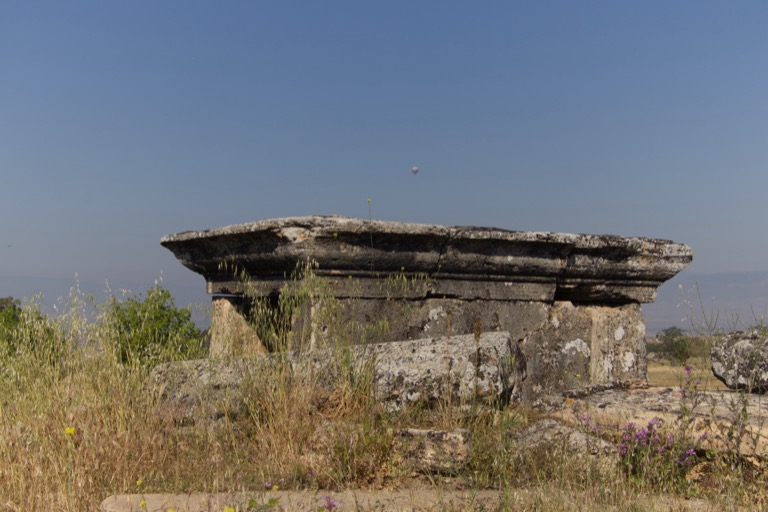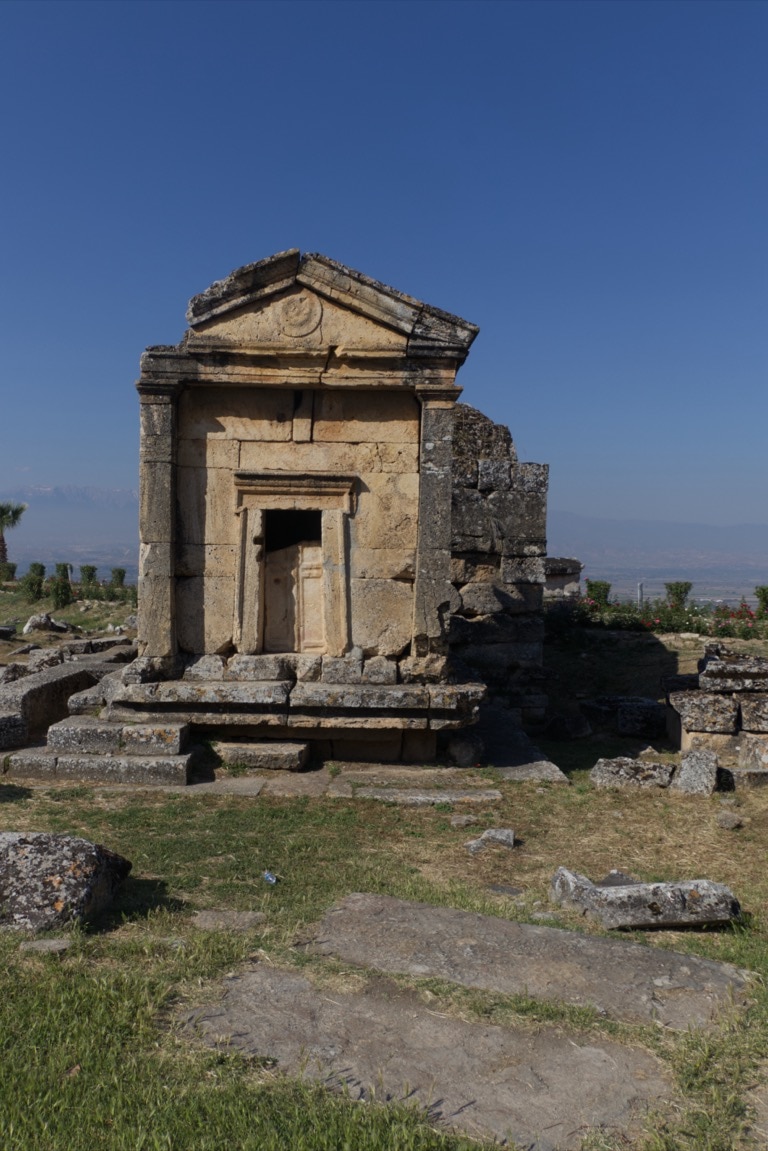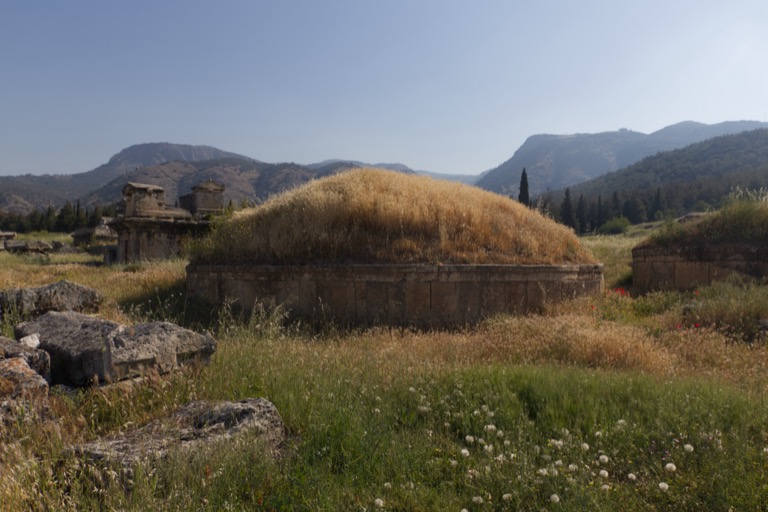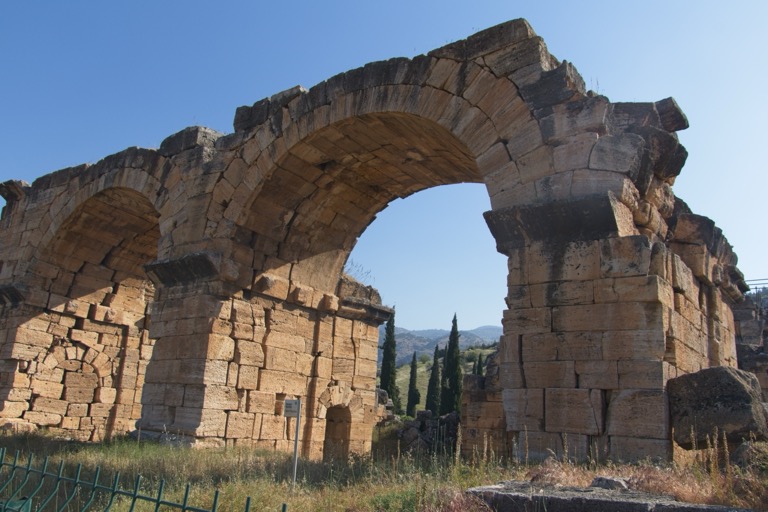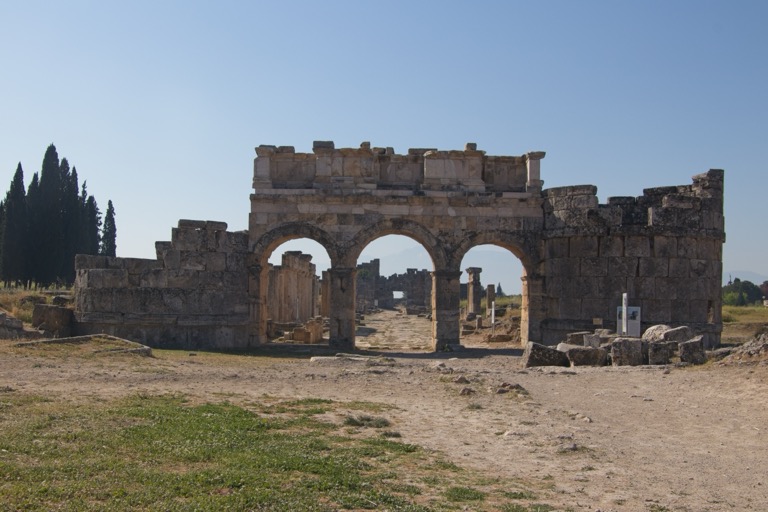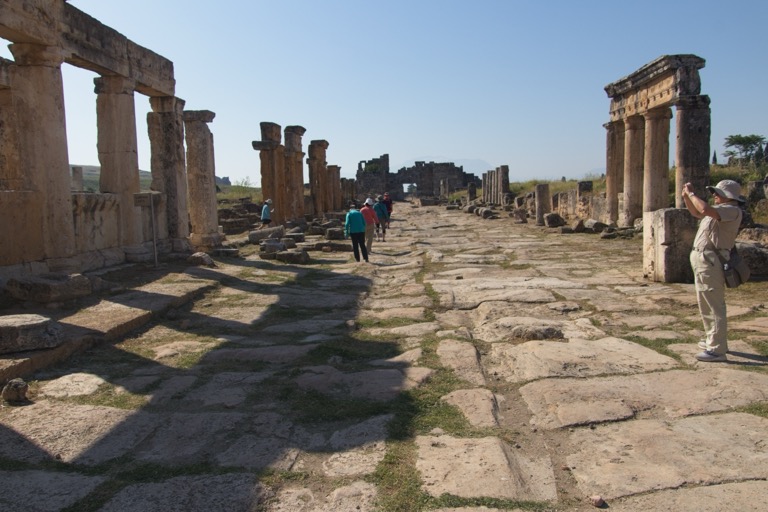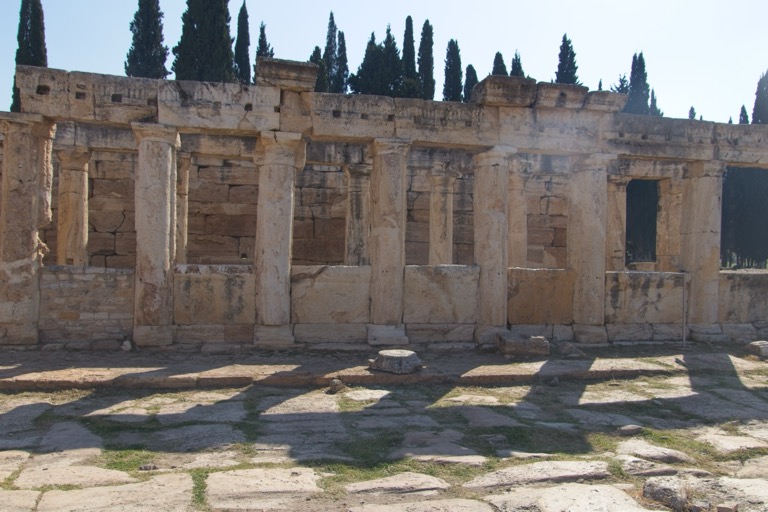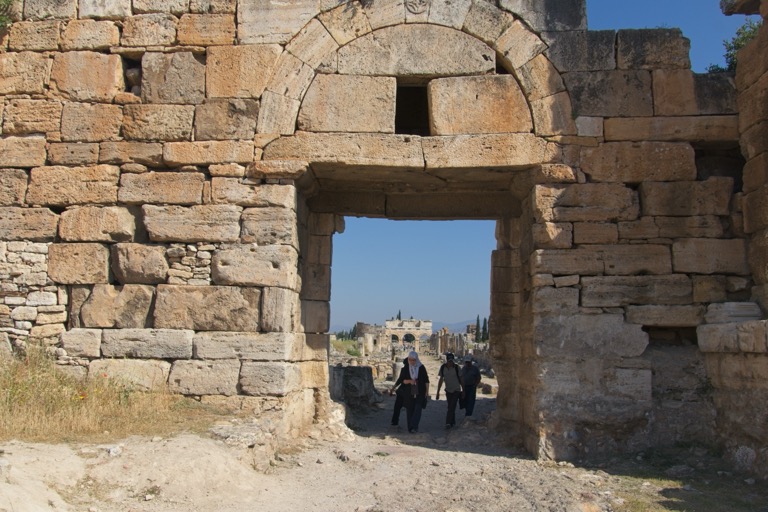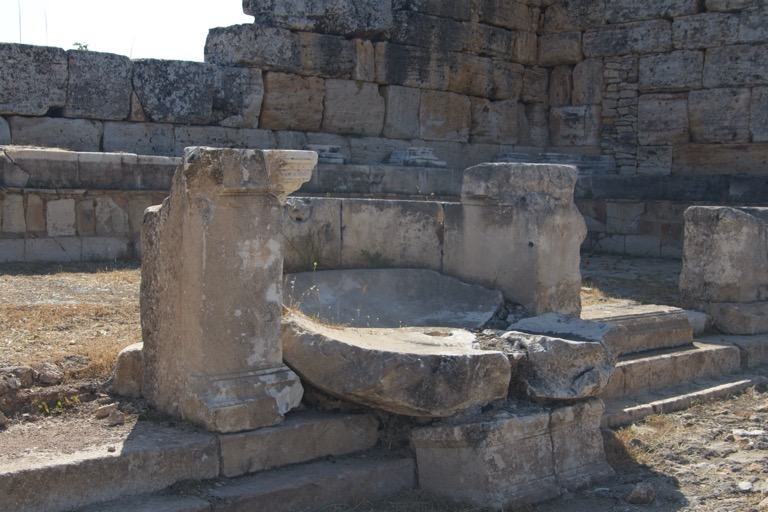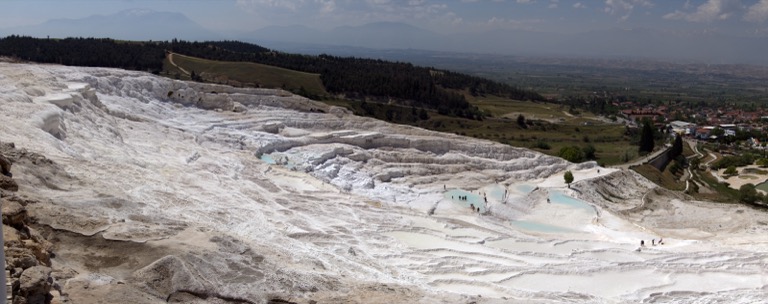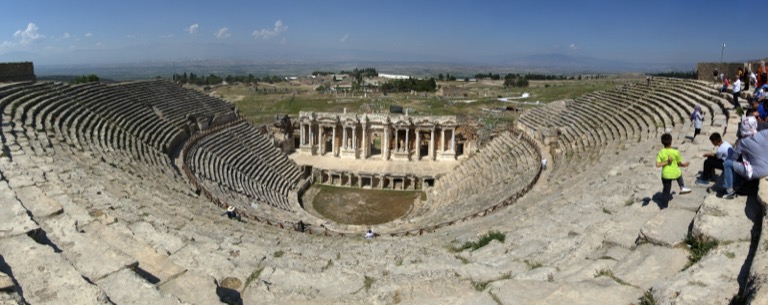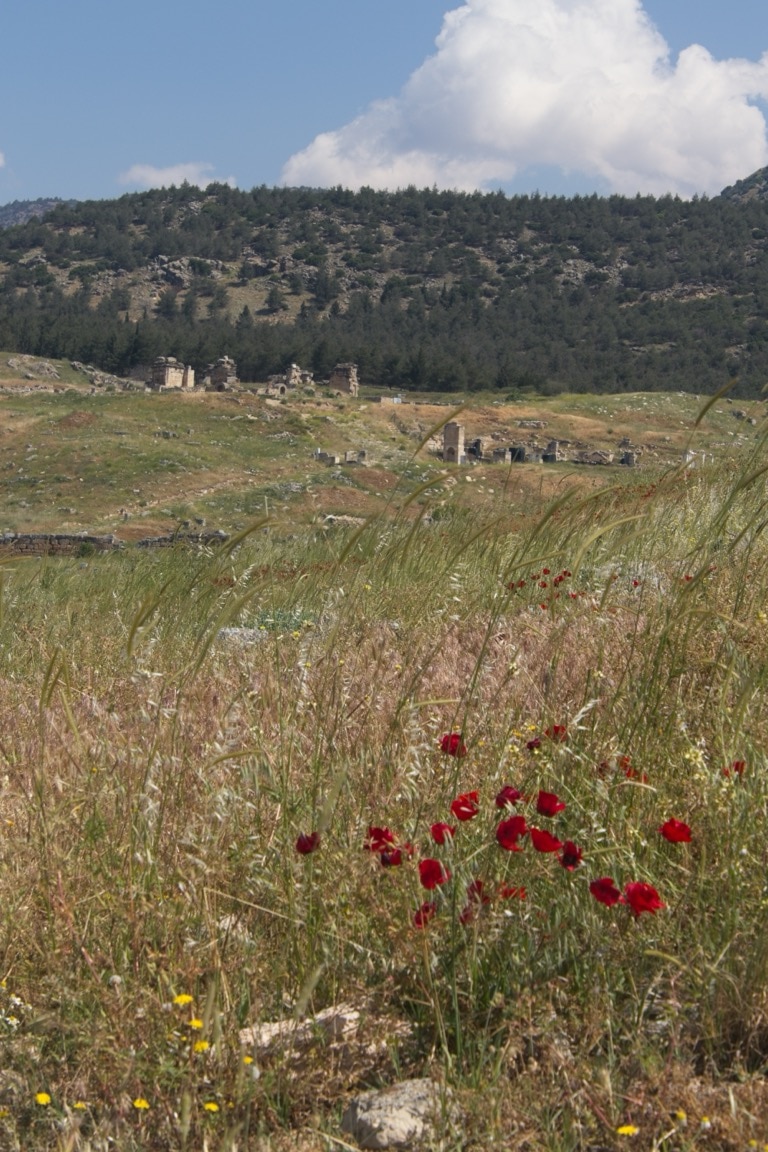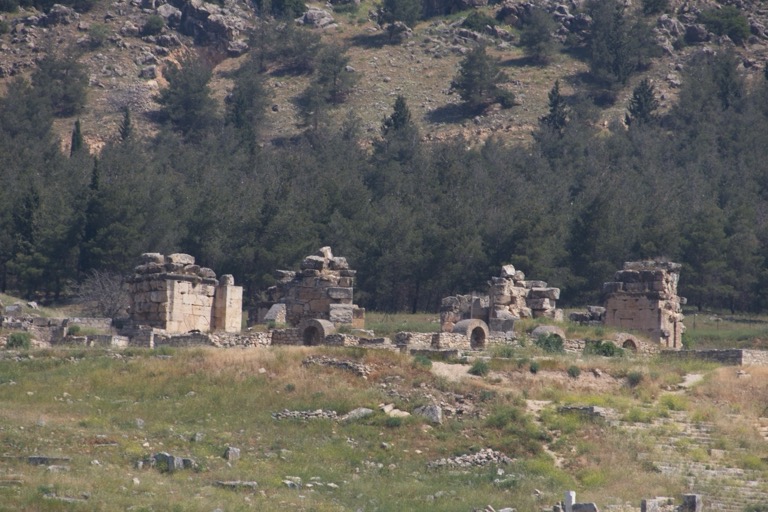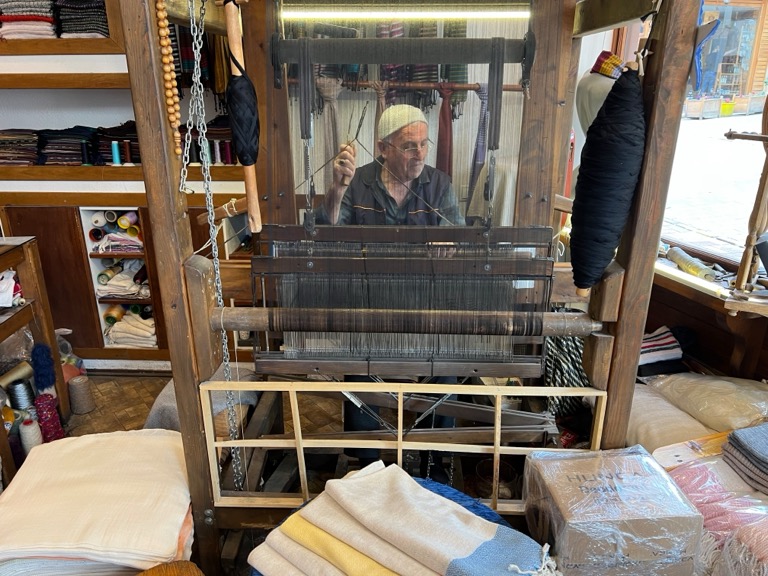on
Hierapolis
This morning we tour Hierapolis which is a UNESCO World Heritage Site. It’s been famous for soaking in the travertine pools since antiquity.
The tour starts on the north side of Heirapolis which is the necropolis, or graveyard. The graveyard is much larger than a city of this size would normally have. Many older people came here to soak in pools to relieve their pains and died here.
There are three types of tombs: sarcophagus, mausoleum, and Tumulus.
We pass by the Roman baths just outside the gate.
Then we enter through the city gate.
The main road leading into the city going south.
The latrines are on the left as we enter.
There is a second gate that was built later when the city was smaller.
The travertine hillside goes down the southwest side of Heirapolis. There are a few pools that you are allowed to wade in. The photo below shows the lowest pools you can get to. We didn’t go that far down.
After wading in the pools, we went up to the theater, walking all the way up the hill to the top.
You can see ruins of the church built around the tomb of the Apostle Philip from the theater. It’s higher up the hill towards the eastern side of the necropolis.
We ate lunch in Buldan Bezi which is famous for its cloth. There was a little time to walk around and shop after eating.
In our free time in the afternoon we walked around Pamukkale.
